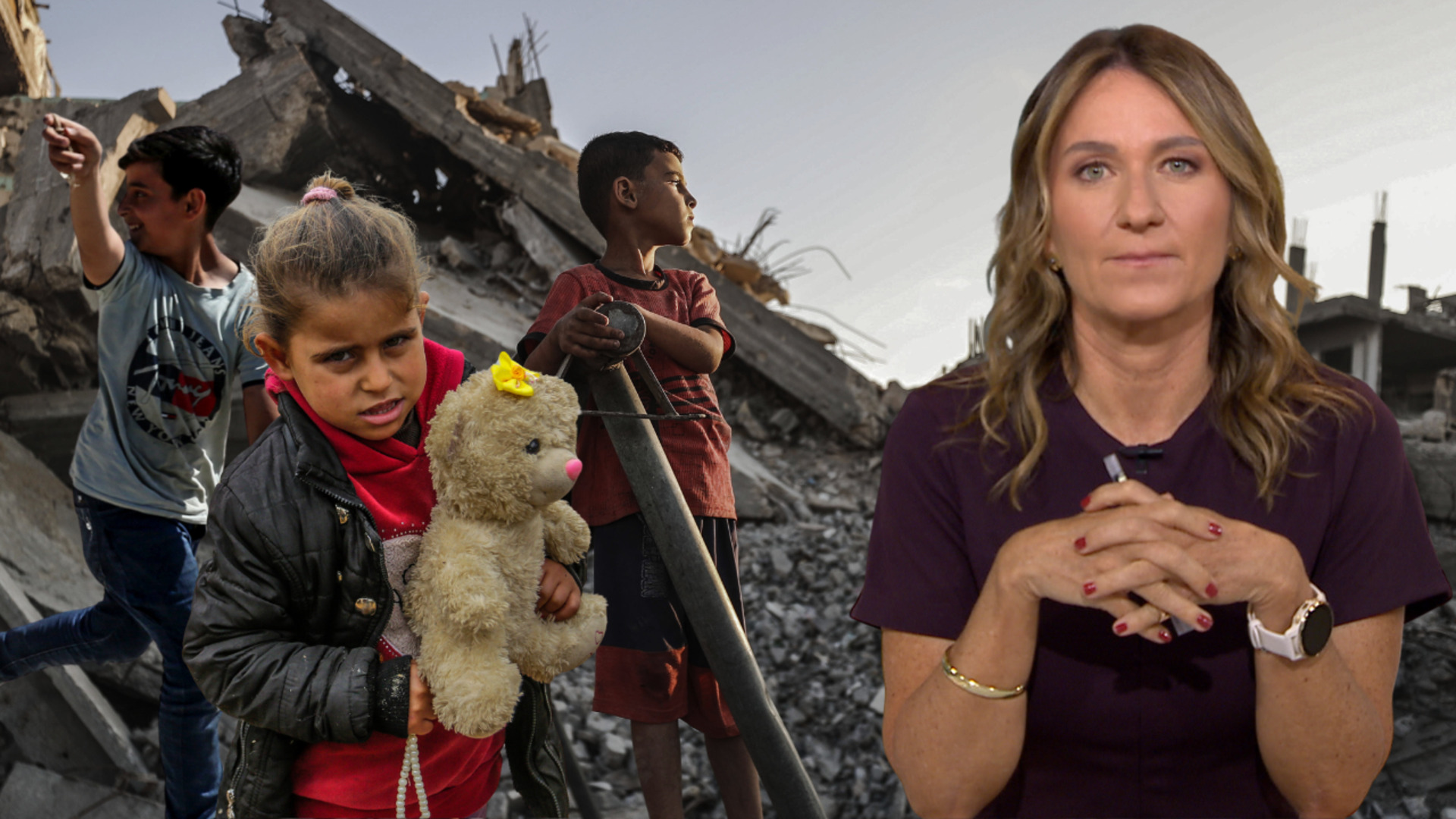On Thursday morning, President Donald Trump announced that the United States, working with Egypt, Turkiye and Qatar, had finally reached a ceasefire deal for Gaza. For a moment, it seemed as if Gaza’s long nightmare was coming to an end.
But the ceasefire didn’t bring peace; it only shifted the suffering into a quieter, more insidious form, where the real damage from the rubble began to settle into Gaza’s weary soul. Years of relentless shelling had built up fear and heartbreak that no outsider could erase.
During those two brutal years of bombing and near-total destruction, everyone in Gaza was focused on one thing: Staying alive. We were fighting for every minute, trying not to break down, starve, or get killed. Life became an endless loop of terror and waiting for the next strike. No one had the luxury to dream about tomorrow or even to mourn the people we’d lost. If there was any kind of shelter, and that was a big if, the goal was simply to move from one shattered refuge to another, holding on by a thread. That constant awareness that death could come at any moment turned every day into an act of survival.
Then, when the explosions finally eased, a quieter kind of pain crept in: All the grief we had buried to get through the chaos. Almost everyone had someone torn away, and those pushed-aside memories came rushing back with a force that took the breath out of us. As soon as the rockets fell quiet, another fight began inside people’s chests, one full of mourning, flashbacks and relentless mental anguish. On the surface, it looked like the war was over, but it wasn’t. It was far messier than that. Even when the shelling eased, the emotional wounds kept bleeding.
When the noise finally faded, people began to ask the questions they had forced themselves to ignore. They already knew the answers – who was gone, who would not be coming back – but saying the words out loud made it real. The silence that followed was heavier than any explosion they had survived. That silence made the truth impossible to avoid. It revealed the permanence of loss and the scale of what had vanished. There were holes everywhere, in homes, in streets, in hearts, and there was no way to fill them.
People in Gaza breathed a fragile sigh of relief when the news of a ceasefire arrived, but they knew the days ahead could hurt even more than the fighting itself. After 733 days of feeling erased from the map, the tears locked behind their eyes finally began to fall, carrying with them every ounce of buried pain. Each tear was proof of what they had endured. It was a reminder that a ceasefire does not end suffering; it only opens the door to a different kind of torment.
As the guns fell quiet, people in Gaza were left to confront the full scale of the devastation. You could see it in their faces – the shock, the fury, the grief – the weight of years under fire.
Roads that once hummed with life had fallen silent. Homes that had sheltered families were reduced to dust, and children wandered through the ruins, trying to recognise the streets they had grown up on. The whole place felt like a void that seemed to swallow everything, as bottled-up grief burst open and left everyone floundering in powerlessness. During the onslaught, the occupiers had made sure Palestinians could not even stop to mourn. But with the ceasefire came the unbearable realisation of how much had truly been lost, how ordinary life had been erased. Coming face to face with the absence of loved ones left scars that would not fade, and the tears finally came. Those tears ran down exhausted faces and broken hearts, carrying the full weight of everything remembered.
It was not only the mind that suffered. The physical and social world of Palestinians lay in ruins. When the bombing eased, people crawled out of their makeshift tents to find their homes and towns reduced to rubble. Places that had once meant comfort were gone, and streets that had once been full of life were now heaps of debris.
Families dug desperately through the rubble for traces of their old lives, for roads and signs that had vanished, for relatives still trapped beneath the debris. Amid the wreckage, the questions came: How do we rebuild from this? Where can we find any spark of hope? When an entire world has been destroyed, where does one even begin? Israel’s strategy was clear, and its results unmistakable. This was not chaos; it was a deliberate effort to turn Gaza into a wasteland. By striking hospitals, schools and water systems – the foundations of survival – the aim was to shatter what makes life itself possible. Those strikes sowed a despair that seeps into everything, fraying the bonds of community, eroding trust and forcing families to wonder whether they can endure a system built to erase them.
The destruction went deeper than bricks and bodies. The constant shadow of death, the bombs that could fall anywhere, and the psychological toll made fear feel ordinary, hope seem foolish, and society begin to unravel. Children stopped learning, money disappeared, health collapsed, and the fragile glue holding communities together came undone. Palestinians were not only struggling to survive each day; they were also fighting the slow decay of their future, a damage etched into minds and spirits that will last for generations.
When the fighting subsided, new forms of pain emerged. Surrounded by ruins and with no clear path forward, people in Gaza faced an impossible choice: Leave their homeland and risk never returning, or stay in a place without roads, schools, doctors or roofs. Either choice ensured the same outcome – the continuation of suffering by making Gaza unlivable. Endless negotiations and bureaucratic deadlocks only deepened the despair, allowing the wounds to fester even as the world spoke of “peace”.
The ceasefire may have stopped the shooting, but it ignited new battles: Restoring power and water, reopening schools, rebuilding healthcare, and trying to reclaim a sense of dignity. Yet the larger question remains: Will the world settle for symbolic aid and empty speeches, or finally commit to helping Palestinians rebuild their lives? Wars carve deep wounds, and healing them takes more than talk. It demands sustained, tangible support.
After two years under siege, Gaza is crying out for more than quiet guns. It needs courage, vision and real action to restore dignity and a sense of future. The ceasefire is not a finish line. It marks the start of a harder struggle against heartbreak, memory and pain that refuses to fade. If the world does not act decisively, Palestinian life itself could collapse. Rebuilding communities, routines and a measure of normalcy will be slow and difficult, but it has to happen if Gaza is to keep going. Outwardly, the war may have paused, but here it has only changed shape. What comes next will demand everything we have left: Endurance, stubborn hope, the will to stay standing.








